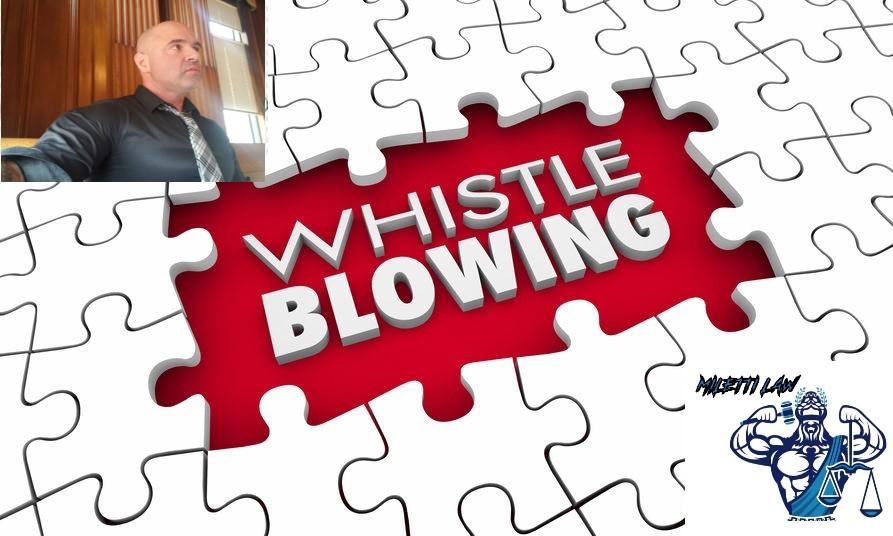Here at the Law Office of Vincent Miletti, Esq. and the home of the #UnusuallyMotivated movement, we take pride as a resilient and dependable legal services firm, providing such services in both a traditional and online, web-based environment. With mastered specialization in areas such as Employment and Labor Law, Intellectual Property (IP) (trademark, copyright, patent), Entertainment Law, and e-Commerce (Supply Chain, Distribution, Fulfillment, Standard Legal & Regulatory), we provide a range of legal services including, but not limited to traditional legal representation (litigation, mediation, arbitration, opinion letters, and advisory), non-litigated business legal representation and legal counsel, and unique, online legal services such as smart forms, mobile training, legal marketing, and development.
Still, here at Miletti Law®, we feel obligated to enlighten, educate, and create awareness, free of charge, about how these issues and many others affect our unusually motivated® readers and/or their businesses. Accordingly, to achieve this goal, we have committed ourselves to create authoritative, trustworthy, & distinctive content. Usually, this content is featured as videos posted on our YouTube Channel https://www.youtube.com/channel/UCtvUryqkkMAJLwrLu2BBt6w and blogs that are published on our website WWW.MILETTILAW.COM. With that, the ball is in your court and you have an effortless obligation to subscribe to the channel and sign up for the Newsletter on the website, which encompasses the best way to ensure that you stay in the loop and feel the positive impact of the knowledge bombs that we drop here!
As the authoritative force in Employment Law, it only seemed right to introduce one of the many upcoming series in which we introduce a variety of topics that looks to educate and deliver in a manner that only Miletti Law® can. In this regard, this blog is Part XVI of our ongoing series on “Trade Secret Misappropriation & Restrictive Covenant Claims.” In Part XVI, we hammered on “The Inevitable Disclosure Doctrine in Seeking Injunctive Relief” and mentioned that, at times, employees are exposed to or receive confidential information from their employers in the course of employment. Based on the prior position and role of an employee, the employer may find it necessary to prevent such an employee from using competitively valuable information even if they did not “misappropriate” it while departing, such as by way of sending it to their email accounts and/or downloading documents or file into an external hard drive or USB.
As a continuation of our discussion, we have switched gears to focus on the concept of “Balance of Equities” as a factor that determines the success or failure of obtaining injunctive relief in our blog titled “Obtaining Injunctive Relief; Balance of Equities in Movant’s Favor” and Part XVI of the series.
Obtaining Injunctive Relief; Balance of Equities in Movant’s Favor
Legally, a movant is a party that makes a motion in a case. Often, a court may deny an employer, who would be seeking to enforce a restrictive agreement, the injunctive relief they seek to obtain. However, if the court grants the requested injunctive relief against the harm to the employer, it must weigh the potential hardship to an employee. At times, assuming that the employer seeks to enforce the restrictive covenants, then the employee may have acknowledged and agreed not to contend hardship with respect to the restrictive covenant at issue. Suppose this is the case, and owing to the fact that the employee would need to continue earning a livelihood, the employee remains free to participate in particular business activities.
Additionally, it is advisable that the movant looks at precedent in the applicable jurisdiction. In some jurisdictions, courts have found that when a restrictive covenant agreement is enforced, any hardship to an employee is ameliorated by the informed consent of the employee to that particular outcome when this employee agreed to execute the covenant and, eventually, decided to violate it.
A few months ago, employees whose job mobility had been impaired or had been involuntarily terminated due to harsh market conditions caused by the COVID-19 pandemic benefited from the court’s more forgiving stance. As of now, while they would need to continue evaluating the employee’s underlying misconduct and emphasizing their legitimate interests, employers should be prepared to address any concerns the court may have on these issues when they wish to enforce restrictive covenants against terminated employee(s). As mentioned earlier, employers need to know that since an employee who is still subject to post-employment restrictive covenants may need to continue earning a basic livelihood as empowered by the law, the employee remains free to participate in particular business activities.
In the next blog titled “The Risk of Irreparable Harm if Injunctive Relief is not Granted” and Part XVII of this series, we will shift our focus on another factor that determines the success or failure of seeking and obtaining injunctive relief against an employee who engaged in trade secret misappropriation and/or breach of a restrictive covenant.
In the meantime, stay tuned for more legal guidance, training, and education. In the interim, if there are any questions or comments, please let us know at the Contact Us page!
Always rising above the bar,
Isaac T.,
Legal Writer & Author.
 Professional Legal & Business Services And Representation - English & Espanol!
Professional Legal & Business Services And Representation - English & Espanol!

 314-648-2586
314-648-2586 CALL US NOW
CALL US NOW







